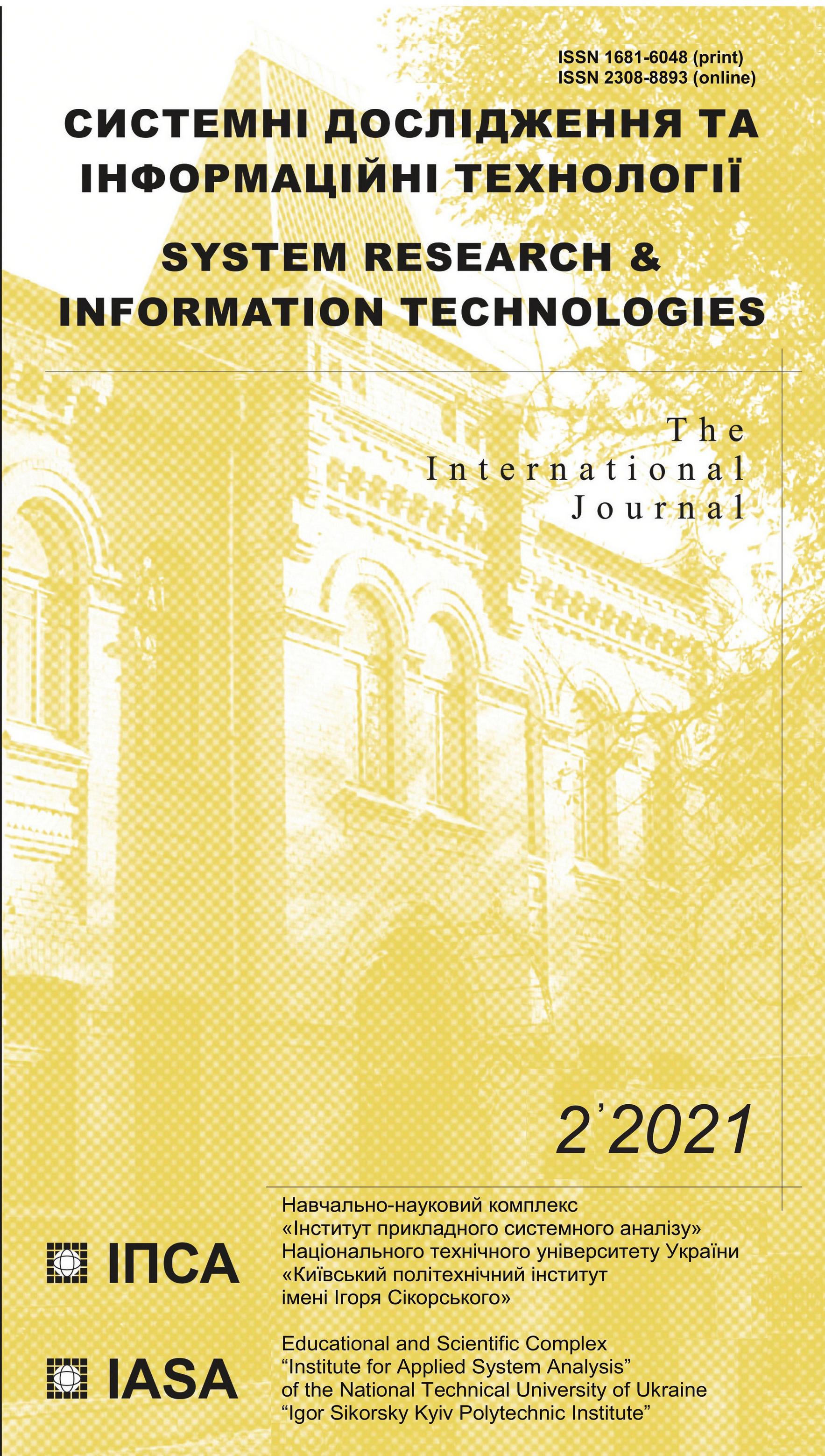Information technology of visualization for technological processes for research modes of functioning of complex technological systems
DOI:
https://doi.org/10.20535/SRIT.2308-8893.2021.2.06Keywords:
hybrid systems, discrete-continuous networks, Unity, multimedia platform, Petri netAbstract
The development of a mathematical model of a technical system based on the means of discrete-continuous networks and taking into account the interaction with a multimedia platform is presented. The efficiency of the process for visualizing the functioning of the complex technical system is increased by implementing the interaction of the modeling environment with the Unity platform in the feedback mode. The experiments linked to the integration of the DC-Net simulation software environment with the Unity cross-platform development environment are implemented. An example of developing the model of a technical system in the DC-Net environment and an example of developing a process for visualizing the functioning of a corresponding technical system based on the Unity platform are presented. The fundamental suitability of using the integration of various information technologies linked with various software environments has been confirmed.
References
O.M. Gaitan, N.A. Fursova, and M.I. Gavrilina, “Vizualizaciya rezul'tativ modelyuvannya virobnichih sistem”, Bulletin of Kremenchug National University named after Mykhailo Ostrogradsky, no. 5, pp. 78–82, 2013.
J.L. Peterson, Petri net theory and the modeling of systems. Prentice Hall PTR, 1981, 290 p.
M.Z. Zgorovky and V.A. Denisenko, Diskretno nepreryvnye sistemy s upravljaemoj strukturoj [Discrete-continuous system with controlled structure]. Kiev, Naukova dumka, 1998, 350 p.
Z. Yang and M. Blanke, “A unified approach to controllability analysis for hybrid control systems”, Nonlinear Analysis: Hybrid Systems, vol. 1, iss. 2, pp. 212–222, 2007. doi: 10.1016/j.nahs.2006.08.002
M.A. Drighiciu, “Hybrid Petri nets: A framework for hybrid systems modeling”, 2017 International Conference on Electromechanical and Power Systems (SIELMEN) – IEEE, 2017, pp. 020–025. doi: 10.1109 /SIELMEN. 2017. 8123285
I. Farkas et al., “Wireless sensor network protocol developed for microcontroller based Wireless Sensor units, and data processing with visualization by LabVIEW”, 2014 IEEE 12th International Symposium on Applied Machine Intelligence and Informatics (SAMI), IEEE, 2014, pp. 95–98. doi: 10.1109/SAMI.2014.6822383
S. Sumathi and P. Surekha, LabVIEW based advanced instrumentation systems. Berlin: Springer, 2007. P. 728.
S. Boeykens, Unity for architectural visualization. Packt Publishing Ltd, 2013, 125 p.
A.V. Denisenko and A.A. Gursky, “Development of principles of dcnet and flash environments interaction”, Automation of technological and business-processes, vol. 8, iss. 2, pp. 22–26, 2016. doi: 10.15673/atbp.v8i2.164
A.V. Denisenko, “Informacionnaya tekhnologiya animacii slozhnyh tekhnicheskih kompleksov na osnove diskretno-nepreryvnyh setej, Flash-tekhnologii i instrumental'nyh sredstv DCNET”, Data registration, storage & processing, vol. 16, iss. 3, pp. 54–60, 2014.
A.V. Denisenko, “Strukturno-analiticheskoe modelirovanie i animaciya tekhnologicheskih processov v inzhenerno-tekhnicheskih kompleksah”, Data registration, storage & processing, vol. 18, iss. 2, pp. 67–74, 2016.
O. Drozd, V. Kharchenko, A. Rucinski, T. Kochanski, R. Garbos, and D. Maevsky, “Development of models in resilient computing”, 2019 10th International Conference on Dependable Systems, Services and Technologies (DESSERT). IEEE, 2019, pp. 1–6. doi: 10.1109/DESSERT.2019.8770035.

